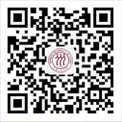
刘国华等:Clarifying the contributor of ammonia oxidation in chlorine-mediated electrochemical process
发布时间:2023-08-30
ABSTRACT:Chlorine-mediated electrochemical advanced oxidation (Cl-EAO) is a promising means of ammonia removal from wastewater. However, the role of active chlorine and chlorine radicals in the Cl-EAO process remains unclear. Carbonate ion (Na2CO3) is employed in this study to understand the main contributor of ammonia oxidation, and the EPR determination, free radical inhibition assay experiments, and probe experiments are used to clarify the role of chlorine radicals. The results of adding a low concentration of Na2CO3 (10 mM) to the Cl-EAO system show that active chlorine productionrate is inhibited, but ammonia oxidation is promoted. Meanwhile, the results of adding a high concentration of Na2CO3 (50 mM) in the Cl-EAO system show that active chlorine levels increase, but ammonia oxidation rate is significantly inhibited. Obviously, the active chlorinehas little effect on ammonia oxidation, and the free radical detection and inhibition assays show that only 9.51% of oxidization is by active chlorine, proving that breakpoint chlorination oxidation is not the main pathway, while the chlorine radicals (Cl• and ClO•) are the main contributors, and the contribution of Cl• is comparable to ClO•. The chlorine radicals-contributing ammonia oxidation process follows zero-order kinetics, and ammonia oxidation process in this system is revisited based on the evidence from this study.
KEYWORDS:Ammonia, Electrochemical advanced oxidation, Chlorine radical, Active chlorine
摘要:氯介导的电化学高级氧化(Cl-EAO)是一项具有前景的废水脱氨技术。但是活性氯和氯自由基在这个过程中的贡献仍不明确。本研究通过引入碳酸根离子(Na2CO3)明确了这个过程中氨氧化的主要贡献者,并通过EPR扫描、自由基抑制实验和探针实验阐明了氯自由基的作用。结果发现,低浓度Na2CO3(10 mM)抑制了Cl-EAO体系中活性氯的产生速率,但却提高了氨氧化效率。同时,伴随着高浓度Na2CO3(50 mM)的添加,溶液中活性氯的浓度增加,但却显著降低了氨氧化效率。显然,活性氯对体系中氨氧化过程的影响很小。自由基检测和自由基抑制实验结果表明,活性氯对氨氧化的贡献只有9.51%,证明在这个过程中折点氯化并不是氨氧化的主要途径,氯自由基(Cl•和ClO•)才是氨氧化的主要贡献者,并且结果表明Cl•和ClO•对氨氧化的贡献相当。这个体系中氯自由基主导的氨氧化过程遵循零级反应动力学特征,氨氧化机制被重新评估。
关键词:氨氮,电化学高级氧化,氯自由基,活性氯
原载:Chemical Engineering Journal(2023 Impact Factor = 15.1)





